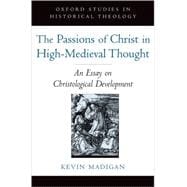
Note: Supplemental materials are not guaranteed with Rental or Used book purchases.
Purchase Benefits
What is included with this book?
| Abbreviations | p. xi |
| Introduction | p. 3 |
| Humanity, Divinity, and Biblical Exegesis in Early Arian Thought | p. 11 |
| Christus Proficiens? Did Christ "Progress in Wisdom?" | p. 23 |
| Christus Nesciens? Was Christ Ignorant of the Day of Judgment? | p. 39 |
| Christus Patients? Did Christ Suffer Pain in the Passion? | p. 51 |
| Christus Passibilis? Did Christ Experience Fear and Sorrow in Gethsemane? | p. 63 |
| Christus Orans? A Praying God? | p. 73 |
| Conclusion: The Passions of Christ in Ancient and Medieval Thought Continuities and Discontinuities | p. 91 |
| Notes | p. 95 |
| Index | p. 143 |
| Table of Contents provided by Ingram. All Rights Reserved. |
The New copy of this book will include any supplemental materials advertised. Please check the title of the book to determine if it should include any access cards, study guides, lab manuals, CDs, etc.
The Used, Rental and eBook copies of this book are not guaranteed to include any supplemental materials. Typically, only the book itself is included. This is true even if the title states it includes any access cards, study guides, lab manuals, CDs, etc.